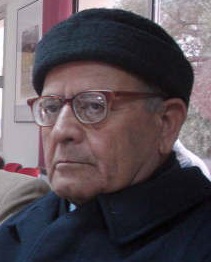Index relies entirely on the support of donors and readers to do its work.
Help us keep amplifying censored voices today.
An amnesty panel in Baghdad has cleared AP photographer Bilal Hussein of charges of conspiring with Iraqi insurgents. Hussein has been held by US forces since April 2006. AP chief Tom Curley welcomed the decision, and called on the US to release Hussein.
Read more here
 The murder of Shahab Al-Tamimi highlights the difficulties faced by Iraqis trying to build a free press and civil society, say Dave Anderson and Gary Kent
The murder of Shahab Al-Tamimi highlights the difficulties faced by Iraqis trying to build a free press and civil society, say Dave Anderson and Gary Kent
Are we becoming inured to the murders of journalists and civil society leaders in Iraq? The outcry is minimal when another brave figure doing his patriotic duty at some considerable risk is deliberately targeted and murdered.
Journalists are regular targets for the insurgents and criminal gangs, and some have been killed by US forces. In 2007, 25 journalists and media assistants were kidnapped in Iraq; 208 reporters have died on duty since 2003.
The latest victim of what is almost certainly a strategy of terror and decapitation of the political leadership of the new labour movement is 75 year-old Shahab Al-Tamimi, the leader of the Iraqi Journalists’ Union since 2003.
The Information Commissioner, Richard Thomas, has ruled that minutes of cabinet meetings in the days leading up to the Iraq war should be released.
 The release of a draft of the British government’s dossier on Iraqi weapons confirms suspicions but also raises more questions, writes Chris Ames
The release of a draft of the British government’s dossier on Iraqi weapons confirms suspicions but also raises more questions, writes Chris Ames
Monday’s release of the John Williams draft of the Iraq “weapons of mass destruction” dossier shows why the government fought for so long to suppress it. It proves what I have always suspected: that a spin doctor was in the thick of sexing up the document that took Britain to war. At the same time, Williams himself has shattered the Foreign Office case for not releasing the draft under the Freedom of Information Act.
We learn two things from the document. Firstly, Williams produced what became the dossier’s executive summary, which purported to set out the Joint Intelligence Committee’s (JIC) “judgments”. Secondly, and consequently, the draft is proved to have led to JIC chairman John Scarlett’s “first draft” the next day and therefore to the published dossier. The first shows that the government misled parliament in making the case for war. The second shows that the government misled the Hutton and Butler inquiries, and parliament again, to cover this up.